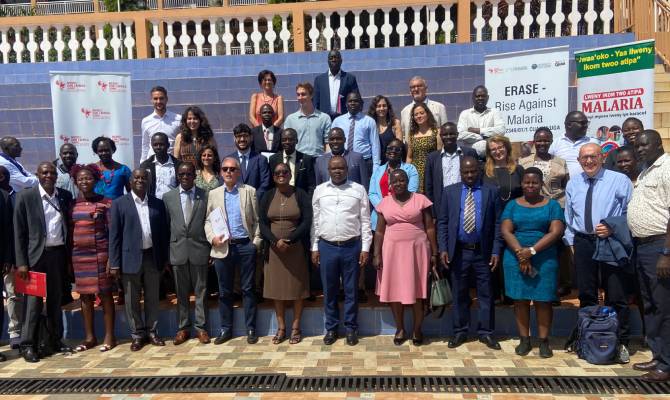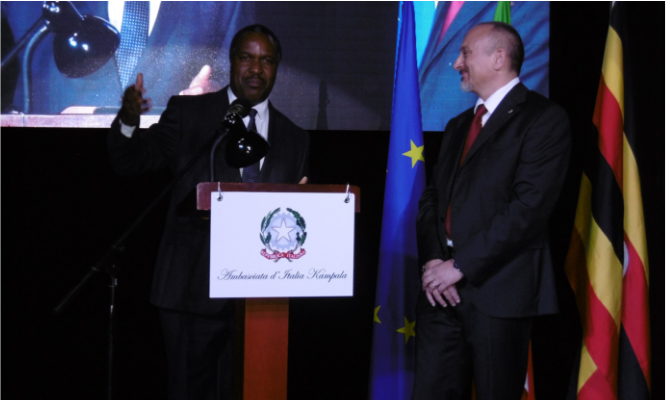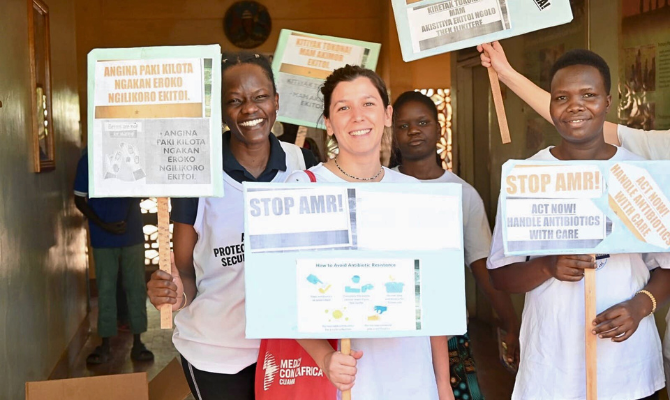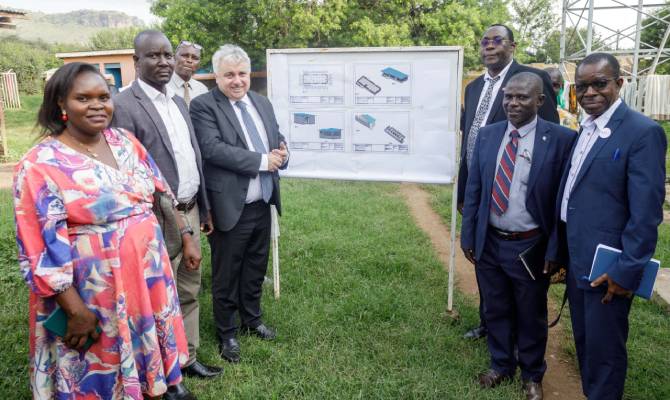The research teams of Doctors with Africa Cuamm and University of Bari Aldo Moro gathered in Kampala, Uganda, for the presentation event of the study on malaria in pregnancy and drug resistance, in the presence of representatives from the Ugandan Ministry of Health, Paolo Giambelli – Director of the Italian Agency for Development Cooperation (AICS), and authorities from the districts of Oyam and Kole where the study was conducted. The research was carried out as part of the “ERASE – Rise against malaria project – Support for prevention, diagnosis, and treatment of malaria in the context of the Covid19 pandemic”, with the support of the Italian Agency for Development Cooperation (AICS).
“The cooperation between Italy and Uganda is based on a long-standing commitment that continues to evolve, particularly in strengthening the healthcare system. I am pleased to be here today to acknowledge the success of this collaboration, which fully reflects the approach and intervention strategy adopted by the Ugandan Ministry of Health. An approach in which operational research and community engagement become key elements for achieving health objectives,” stated Paolo Giambelli, Director of AICS in Uganda, Rwanda, and Burundi.
Representing the District Health Officer of Oyam District, Dr. Fr. Samuel Okori recognized CUAMM and the Italian Government for the support in the fight against malaria as he also underlined the importance for Uganda to share best practices and lessons learned from countries who have already defeated the epidemic, as Mauritius and Algeria.
“Today has been a testament to the power of collaboration. This has demonstrated a big image in collaboration and partnership in the fight against malaria. I know that these results that we have received from different players, will help us guiding new interventions in the malaria response, theerefore supporting the achievement of the 2030 goal. I want to express my appreciation to the project team members, partner organizations, and stakeholders who have worked tirelessly to generate these impactful results”. Remarked Chemuko Fred, representing the CCM Constituency.
A cohort of 1,558 pregnant women underwent screening at each prenatal visit until delivery. The research showed that 29.7% women contracted malaria during pregnancy. The study also found that the incidence of low birth weight and preterm birth was 8% and 19% respectively. Women who tested positive were treated, and samples collected were analyzed at the Istituto Superiore di Sanità to investigate drug resistance markers used for therapy and prevention in pregnant women.
Operational research is indeed a key component of CUAMM’s work: conducting research means studying and deeply understanding the contexts in which interventions occur, adopting a critical method, identifying best practices based on scientific evidence, and also ensuring precise accountability. Doctors with Africa Cuamm has been committed for years to operational research recognized as an integral part of the Organization’s strategic plan, complementary to field activities and indeed functional to increasingly effective results. In this shared vision, the established collaboration with the University of Bari Aldo Moro fits in seamlessly.
The collected results have strengthened malaria prevention and control practices in the communities, improving the quality of health services at the community level and in healthcare facilities in the Oyam and Kole districts in the Lango region, Northern Uganda. The two districts at the center of the research have a malaria incidence rate higher than the national average, with 407 new cases per 1,000 inhabitants in Oyam, and 361 in Kole, compared to a national average of 289 new cases per 1,000 inhabitants.
“Data are important for conducting effective strategies,” explained Giovanni Putoto, Head of Programming and Operational Research for Cuamm. “A strategy exists: WHO has one, and the Ugandan Ministry of Health is exemplary in following it to respond to the disease. This strategy is based on pillars such as the use of integrated preventive treatments in pregnancy and childhood and seasonal chemoprevention capable of reducing morbidity and malaria incidence in the country. However, achieving the goals of reducing the disease requires constant political commitment that we must carry out on multiple levels, working in communities, referral hospitals, and decision-making tables with the relevant authorities”.
Malaria is among the deadliest infectious diseases globally. 95% of diagnosed cases occur in sub-Saharan Africa, which also holds another grim record: about 80% of malaria deaths are children under 5 years old. According to the World Health Organization, one-third of pregnant women living in sub-Sahaaran Africa contract the infection during gestation.
“Dealing with malaria in pregnancy is important because, besides being a condition that jeopardizes the lives of many women, it can also transform into placental malaria,” explains Francesco Vladimiro Segala, doctor in Infectious Diseases. “This condition hinders fetal development and results in premature births and underweight newborns.”
“The research group from the Department of Infectious and Tropical Diseases has a special focus on the needs of vulnerable populations,” declared Professor Annalisa Saracino from University of Bari. “Being here in Uganda today, with the entire team that worked on this project, testifies to the sincere involvement of the University, which firmly believes in the scientific and human value of research like this.”





